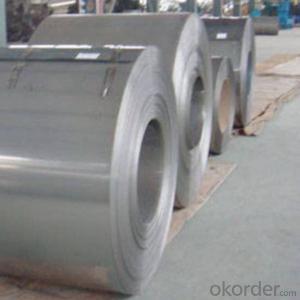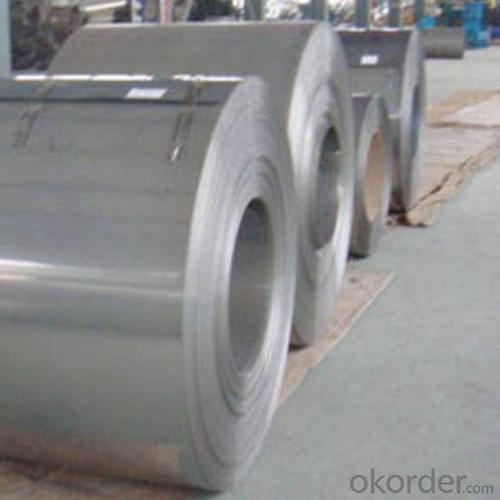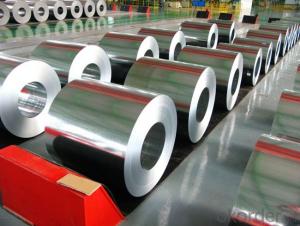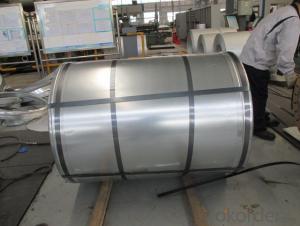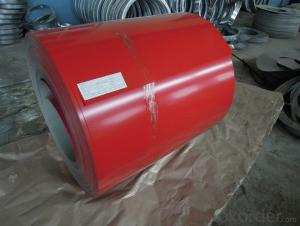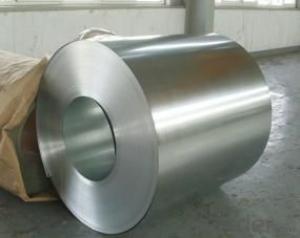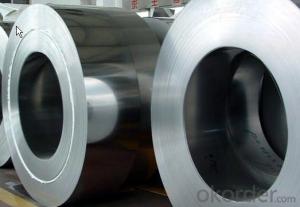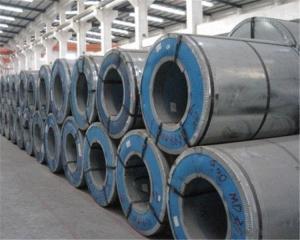Stainless Steel Coils 316 Stainless Steel Plate Steel Sheets
- Loading Port:
- Shanghai
- Payment Terms:
- TT OR LC
- Min Order Qty:
- 25 m.t.
- Supply Capability:
- 10000 m.t./month
OKorder Service Pledge
OKorder Financial Service
You Might Also Like
Specification
Description for Stainless Steel Coils/Sheets:
Prodcut:Stainless Steel Coil
Thinckness: 0.20mm-8.0mm
Width:1000mm, 1219mm(4 feet), 1250mm, 1500mm, 1524mm(5 feet),
1800mm, 2000mm, 2200mm, 2500mm,and customizable
Ni:0.8~1.2% Cu:1.4~1.5% Cr:14
Standard: ASTM, JIS, GB, BS, DIN etc
Grade: 200series&300series&400series
Surface finish: 2B, BA, 8K, 6K, Mirror Finished, No1, No2, No4, Hair Line with PVC
Manufacture technology: cold rolled/hot rolled
Thickness Tolerance: +/-0.1mm
Width Tolerance: +/-10mm
200 Seriers: 201,202
300 Seriers: 301, 304, 304L, 316L, 309, 310S,321
400 Seriers: 410, 410S, 409L,430
Our Service
1.High quanlity and reasonable price.
2.Customized on-demand.
3.Reasonable shipping and fast delivery.
4.Free sample.
Specifications for Stainless Steel Coils/Sheets:
ITEM | DESCRIPTION |
Commodity | Stainless Steel Coil |
Material | 201, 202, 301, 321, 304, 304L, 316, 316L, 309S, 310S, 410, 430, etc. |
Surface | 2B, BA, 8K, No. 4 No.1 |
Standard | AISI, ASTM, DIN, EN, GB, JIS, etc. |
Specification | 1. Thickness : 0.3mm -120mm |
Application | 1. Automotive: Automotive trim and molding/Difficult-to-form exhaust-system |
Process | Hot rolled / cold rolled |
Payment | L/C,T/T |
MOQ | 20 Ton |
Productivity | 700 tons per month. |
Package | Standard seaworthy export packing or according to the customers' request. |
Delivery Time | It is based on the order, normally within 30 days after receiving your advance payment. |
Note | We can produce other standard as the customers' requirement. |
Detail picture for Stainless Steel Coils/Sheets
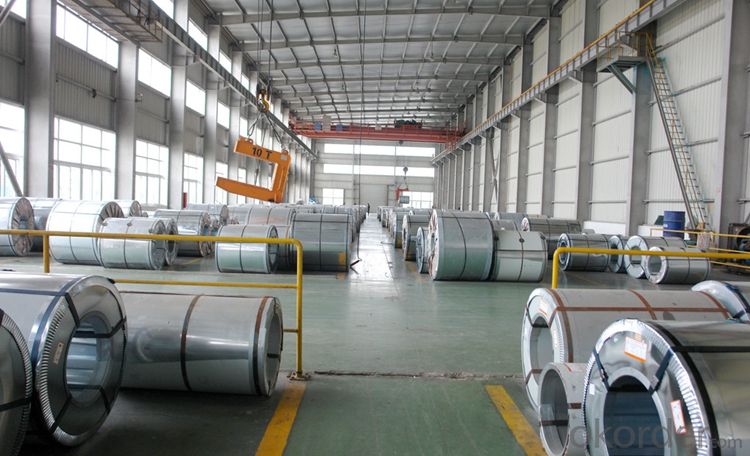
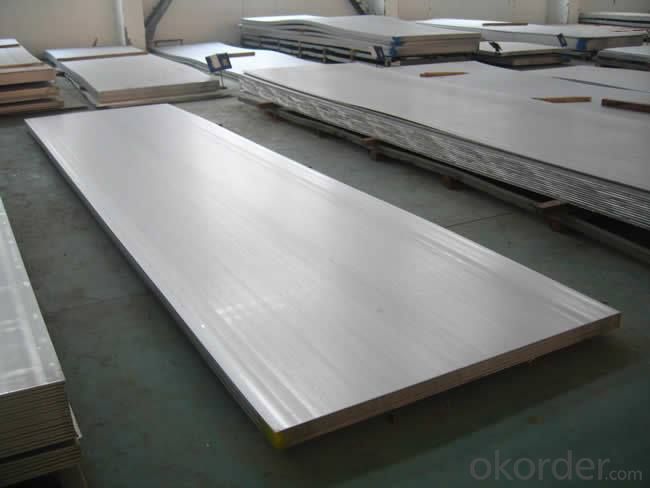
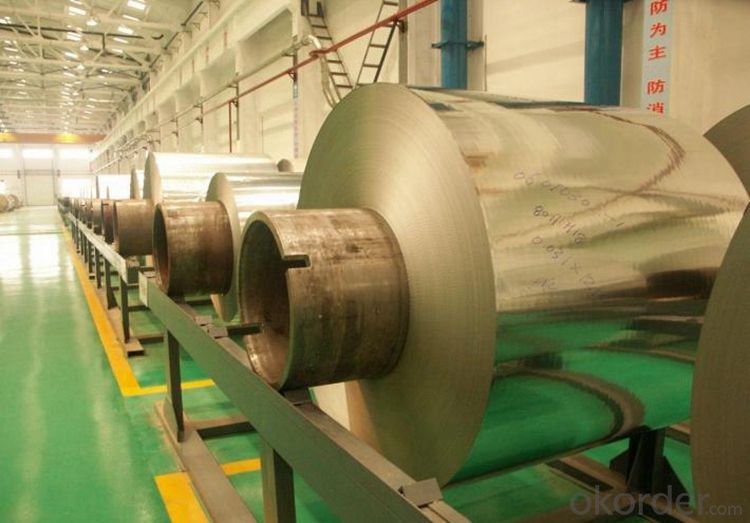
Application of Stainless Steel Coils
(1)Boiler heat exchanger,
(2)Chemical industries,
(3)Hardware fields,
(4)Construction material,
(5)Kitchen utensils,
(6)Building construction,
(7)Medical equipment,
(8)Chemical tank,
(9)Pipe etc
Export Markets for Stainless Steel Coils/Sheets:
Our target market is the international market. Every year we export most of products to countries like India, Pakistan, South Korea, Brazil, Australia, South Africa, Spain, Sri Lanka, Taiwan, Hong Kong, etc.
FAQ for Stainless Steel Coils/Sheets:
Q:What are the advantages of your company ?
A: We have many professionals, technical personnel, more competitive prices and best after-dales service than other stainless steel companies.
Q:Can you arrange the shipment ?
A: Sure we can help you with the shipment. We have forwarders who have cooperated with us for many years.
FAQ for Stainless Steel Coils/Sheets:
Q: How long is the delivery time?
A: Normally 30-40 days, but mostly according to the specific requirements or the quantity
Q: Could you send me sample?
A: We can supply you with the sample for free, but the delivery charges will be covered by customers.
- Q: What are the safety precautions for handling steel coils?
- Some safety precautions for handling steel coils include wearing appropriate personal protective equipment (PPE) such as gloves, safety glasses, and steel-toed boots to protect against potential injuries. It is important to ensure proper lifting techniques are used, utilizing equipment like forklifts or overhead cranes when necessary. Coils should be stored and stacked securely to prevent them from falling or rolling. Regular inspections of coils and equipment should be conducted to identify any potential hazards or damages. Additionally, workers should be trained on safe handling procedures and be aware of the weight and dimensions of the coils they are handling.
- Q: How are steel coils used in the manufacturing of agricultural trailers?
- Steel coils are used in the manufacturing of agricultural trailers to provide strength, durability, and stability to the trailer's frame, ensuring it can withstand heavy loads and harsh working conditions. These coils are typically shaped and welded to create the trailer's structural components, such as the chassis, sidewalls, and flooring. Additionally, steel coils can be cut and formed into various parts, including axles, suspension systems, and hitch assemblies, to further enhance the trailer's performance and functionality in agricultural operations.
- Q: How are steel coils used in the manufacturing of pipes and tubes?
- Steel coils are used in the manufacturing of pipes and tubes by being unwound and fed into a pipe or tube mill. The steel coils are then shaped and welded together to form a continuous pipe or tube, which is further processed and finished according to specific requirements.
- Q: given the buoyant economic growth of india, what you guys think about steel industry? what can be the major issues in this industry in the coming days
- Since2003, India has been the largest sponge iron producer in the world. In 2005, out of total global production of 56.05 mt of sponge iron, India produced around 11.1 mt (19.8%). In line with production target of 110 mt of steel (National Steel Policy) by FY20, many steel producers have announced their capacity expansion plans by signing MOUs with various state governments like Chattisgarh, Orissa and Jharkhand. The steel producers are expected to add around 8 mt of capacity by FY 08. CARE estimates that during 2006-09, demand for steel in the domestic market would grow at a CAGR of 8.4%. HR steel because of its widespread applicability is expected to grow at a CAGR of 17.5%. During this period, major demand drivers would be Consumer durables, Automobiles and Construction. Domestically, steel prices of flat products follow the international trend. Globally, steel prices are expected to firm up with continued growth in steel consumption. Further, the winds of consolidation have gathered pace with Arcelor-Mittal merger and latest acquisition of Corus by Tata Steel. The Indian steel industry has announced huge capacity expansions. With commissioning of these capacities demand-capacity ratio is expected to decline in FY 09 due to excess capacity. Will this lead to a drop in prices with commissioning of these capacities? With China and India becoming the focus of major global steel companies, will the consolidation of steel industry in these countries continue? For comprehensive analysis and CARE’s future outlook on the sector, please refer to the exhaustive report on the Indian Steel Industry by CARE Research.
- Q: What are the advantages of using steel coils in the manufacturing industry?
- Using steel coils in the manufacturing industry offers several advantages. Firstly, steel coils are renowned for their strength and durability, making them an ideal choice for various manufacturing processes. They can withstand heavy loads and resist deformation, ensuring that the final product is reliable and long-lasting. Secondly, steel coils are highly versatile and can be used in a wide range of applications across different industries. They can be shaped, molded, or cut into different forms and sizes, catering to diverse manufacturing needs. Additionally, steel coils are cost-effective. Their strength and durability result in a longer lifespan compared to other materials, reducing the need for frequent replacements and leading to cost savings in the long run. Furthermore, steel coils have excellent thermal conductivity, meaning they can efficiently transfer heat. This makes them suitable for applications that require temperature regulation, such as in the automotive and HVAC industries. Moreover, using steel coils in the manufacturing process contributes to a more sustainable and eco-friendly approach. Steel is one of the most recycled materials globally, reducing the need for raw materials extraction and energy consumption, and resulting in a reduced carbon footprint. Furthermore, steel coils can be coated with protective layers to enhance their resistance to rust and corrosion. This makes them suitable for outdoor applications or industries with corrosive environments. Lastly, steel coils offer consistent quality and uniformity in terms of dimensions, mechanical properties, and surface finish. This ensures that the end products meet the required specifications and maintain a high level of quality. To summarize, the advantages of using steel coils in the manufacturing industry include their strength, durability, versatility, cost-effectiveness, excellent thermal conductivity, recyclability, corrosion resistance, and consistent quality. These benefits make steel coils a popular choice for various manufacturing processes across different industries.
- Q: What are the various surface finishes available for steel coils?
- There are several surface finishes available for steel coils, each with its own unique properties and applications. Some of the most commonly used surface finishes for steel coils include: 1. Hot rolled: This finish is achieved by rolling the steel at high temperatures, which creates a rough, scale-like surface. Hot rolled coils are typically used for structural applications, such as construction materials and industrial machinery. 2. Cold rolled: In contrast to hot rolled coils, cold rolled coils are rolled at room temperature, resulting in a smoother and more refined surface. Cold rolled steel is often used in automotive and appliance manufacturing due to its superior surface finish and dimensional accuracy. 3. Galvanized: Galvanizing is a process that involves coating steel with a layer of zinc to protect it from corrosion. Galvanized steel coils have a shiny, metallic appearance and provide excellent corrosion resistance, making them suitable for outdoor applications, such as roofing, fences, and gutters. 4. Electro-galvanized: Similar to galvanized steel, electro-galvanized coils are also coated with a layer of zinc. However, the coating thickness is typically thinner and achieved through an electroplating process. Electro-galvanized steel coils offer good corrosion resistance and are commonly used in the manufacturing of electrical appliances, automotive parts, and construction components. 5. Pre-painted: Pre-painted steel coils are coated with a layer of paint or polymer film on the surface. This finish provides both protection against corrosion and aesthetic appeal, allowing for a wide range of color options. Pre-painted steel coils are extensively used in the construction industry for applications like roofing, cladding, and wall panels. 6. Stainless steel: While not technically a surface finish, stainless steel coils have their own unique properties that make them suitable for various applications. Stainless steel coils are highly resistant to corrosion, heat, and chemical damage, making them ideal for industries such as food processing, medical equipment, and marine applications. These are just a few examples of the various surface finishes available for steel coils. The choice of finish depends on factors such as the intended application, desired appearance, and level of corrosion resistance required.
- Q: i would like to make a dmascus steel knife, i have the cable but im not sure if its damascus steel or not, how do i tell? and if it isnt damascus steel how do i make a bar of it?
- Here's what you need, the cable should be a minimum of 9/16 with large wires. You need some borax (20 mule team from the store). A good hot coal, coke, or gas forge. If the cable has fiber rope in the center it will need to be removed. Fuse the ends of the cable to keep them from coming apart. I use my welder and while I'm at it I weld a handle to make it easier. Heat it in the forge when the forge is properly heated, rotate it. Some people will burn the oil out, but I've found that the forge does that just fine. Rotate the cable while it's heating. When it begins the turn red pull it out and sprinkle the borax over it, don't hold back use a lot. It will begin to melt and bubble into the steel. Put the cable back in the forge, rotate and watch. This is the critical part. When the steel starts to turn from orange/yellow to almost yellow/white take it out and lightly (I use a 2lb hammer) begin hammering the cable into a square or rectangle. If you do it right you'll notice that it will begin to fight the hammer, that's when you know the weld it taking place. You'll have to repeat the process down the length of the cable. Once you have the billet made you can begin the process of shaping the edge and tang. Once you have it shaped, follow proper forge procedure then grind all the yuck off and finish shaping. Then harden and temper and finish it out. Good luck. I almost forgot a very important part. Befor you start hammering put the cable in a vice while at welding temp (if you are strong you can use a couple of plyers) and twist it tight. On the next heat hold the cable in your left and and lay it on the anvil. Concentrate on your light hammer blows being on your side of the cable. This forces the cable strands together. If you are using smaller cable like 9/16 you can double the cable up and weld two peices together, it is easier and makes for a prettier blade. Doing this you don't have to worry about twisting the cable and you can hit it much harder to start with.
- Q: What are the different methods of coil cutting for steel coils?
- There are several methods of coil cutting for steel coils, each with its own advantages and suitability for different applications. Here are some of the common methods: 1. Slitting: Slitting is the most commonly used method for coil cutting. It involves passing the steel coil through a set of rotating circular blades that cut the coil into narrower strips. This method is suitable for producing narrow width strips with precise dimensions. 2. Shearing: Shearing is another method used for coil cutting, especially for thicker gauge coils. It involves using a straight blade to cut the coil along a straight line. Shearing is suitable for producing larger width strips and is often used for heavier gauge steel coils. 3. Laser Cutting: Laser cutting utilizes a high-powered laser beam to cut through the steel coil. This method offers a high degree of precision and can be used to cut complex shapes and patterns. Laser cutting is often used for specialized applications where accuracy and fine details are crucial. 4. Waterjet Cutting: Waterjet cutting involves using a high-pressure jet of water mixed with abrasive particles to cut through the steel coil. This method is versatile and can be used for cutting various materials, including steel. Waterjet cutting is suitable for producing clean and precise cuts without heat-affected zones. 5. Plasma Cutting: Plasma cutting utilizes a high-temperature plasma arc to melt through the steel coil. This method is efficient and can be used for cutting thick gauges of steel. Plasma cutting can achieve high cutting speeds, making it suitable for industrial applications. 6. Guillotine Cutting: Guillotine cutting involves using a guillotine-like mechanism to cut through the steel coil. The coil is placed on a table, and a blade descends vertically to cut through it. Guillotine cutting is suitable for producing straight and accurate cuts with minimal burrs. The choice of coil cutting method depends on various factors such as the desired width and thickness of the strips, required precision, production volume, and the specific application. It is important to consider these factors and consult with experts to determine the most suitable coil cutting method for a particular steel coil.
- Q: How are steel coils used in the production of pipes and tubes?
- Steel coils are an essential component in the production of pipes and tubes. They are used as the raw material to create the cylindrical shape of the pipes and tubes. The coils are unrolled and fed into a machine called a pipe or tube mill, where they undergo a series of manufacturing processes. First, the steel coils are unwound and straightened to remove any bends or twists. Then, the edges of the coils are trimmed to ensure they are smooth and even. This process is known as slitting. Next, the coils are passed through a forming machine, where they are bent into the desired shape. For pipes, the coils are bent into a circular shape, while for tubes, they can be formed into various shapes, including square, rectangular, or oval. Once the coils have been formed, they are welded together along the length to create a continuous pipe or tube. This welding process can be done using various techniques, such as high-frequency induction welding, electric resistance welding, or submerged arc welding. After the welding is complete, the pipes or tubes may undergo additional processes to improve their properties. These processes can include heat treatment, such as annealing or quenching, to enhance their strength or hardness. Finally, the pipes or tubes are cut to the desired length and may undergo further finishing processes, such as straightening, polishing, or coating, depending on their intended application. In summary, steel coils are used in the production of pipes and tubes as the starting material. They are unrolled, straightened, and formed into the desired shape before being welded together to create a continuous pipe or tube. These products can then undergo various additional processes to improve their properties and meet specific requirements.
- Q: How are steel coils used in the appliance industry?
- Steel coils are used in the appliance industry to manufacture various components such as outer panels, frames, and internal structures of appliances like refrigerators, washing machines, and ovens. The coils are processed to create specific shapes and sizes, providing strength, durability, and stability to the appliances.
Send your message to us
Stainless Steel Coils 316 Stainless Steel Plate Steel Sheets
- Loading Port:
- Shanghai
- Payment Terms:
- TT OR LC
- Min Order Qty:
- 25 m.t.
- Supply Capability:
- 10000 m.t./month
OKorder Service Pledge
OKorder Financial Service
Similar products
Hot products
Hot Searches
Related keywords
